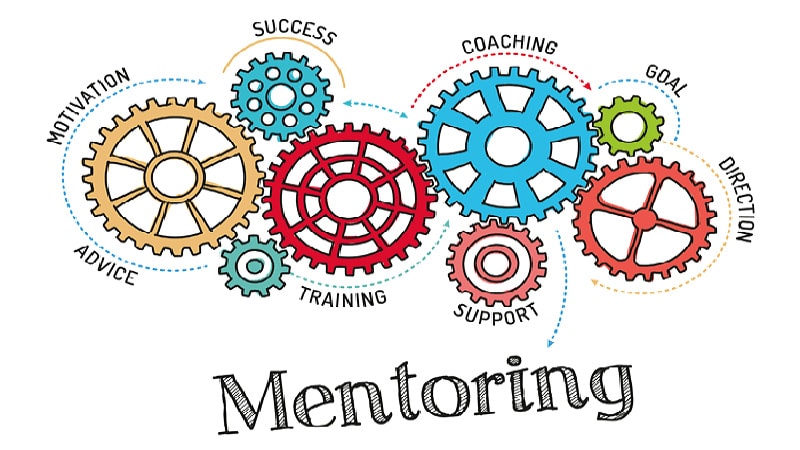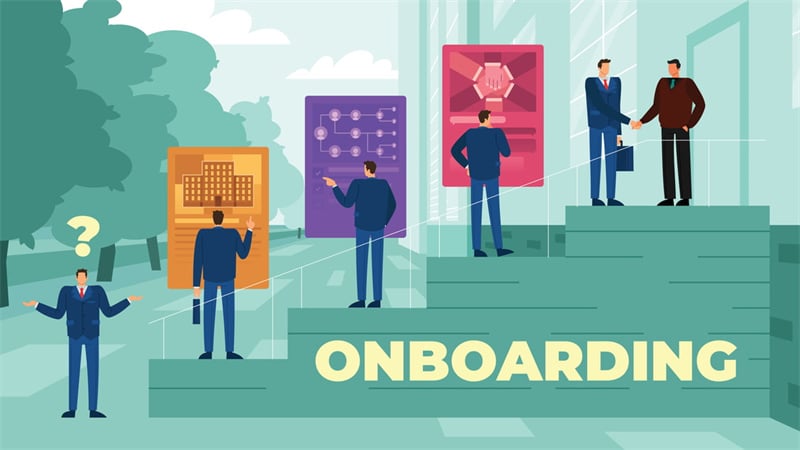
Onboarding is one of the most important steps in the hiring process. As a new hire makes the transition from a candidate to a company employee, what the company does during this timeframe can help to lay the foundation for a long and satisfying employment with the company.
Studies have found that an effective onboarding strategy for new hires can have several benefits including more job satisfaction, employees who are more loyal and committed to the company, better performance and reduced employee turnover.
Sadly, many companies see onboarding as a one-time, transactional event where new hires simply spend the first couple of days sitting in on training sessions or filling out forms. Instead, onboarding should be a process that lasts a few months, allowing the new hire to become actively immersed in the processes and culture of the organisation.
How Mentorship Can Help

One of the best ways to improve onboarding is through the use of mentorships in the company. This allows businesses to create an apprentice model by pairing new hires with more experienced professionals who can help ensure that they become productive and engaged in their new role from as early as possible.
Many organisations find that it is helpful to use a mentoring software like PushFar to set up a mentorship program for new hires within their organisation, making it easier for new hires to be connected to the most suitable mentor for them. Using the PushFar platform, participants can easily find mentor matches, host meetings, and track their goals.
Some of the main ways that mentoring can help during the onboarding process include:
On-the-Job Training
While training and development is something that many organisations provide for their new employees, this is often in the form of independent learning initiatives or classroom-based courses. Although this can be helpful, it’s not uncommon for employees to come away not having learned everything that they need from these methods.
Mentorship can facilitate on-the-job training, which will help to fill any gaps and provide the employee with a change to improve their knowledge and skills in the workplace setting. This can be especially important in industries like healthcare or manufacturing, where small mistakes can be lethal.
Improve Security and Safety
When the newest members of your team are working alongside more experienced colleagues, it will help to ensure that any safety procedures are put in place and taken seriously. While most new hires will take the safety procedures that they have learned about seriously, working with a mentor gives them the chance to see first-hand how to actually put them in place in the workplace setting, rather than simply reading about the policies.
This can be very important in certain industries such as manufacturing where there can be dangerous consequences for not paying sufficient attention to detail. In other industries, such as finance, working with a mentor gives new employees the chance to better understand security protocols such as protecting client data.
Encourage the Transfer of Knowledge
The most senior and experienced employees in your company will have a wealth of knowledge and experience that your company will lose out on if they decide to retire or move on to work somewhere else. This knowledge and experience could be lost forever if there is no process in place to capture it and pass it on to the next generation of employees.
Mentorship programs create a system where experienced and inexperienced colleagues are working together, allowing companies to ensure that their most senior members of staff are passing what they know down to future business leaders.
How to Implement Mentoring in Onboarding

Effective employee onboarding should involve more than sitting in on a couple of training videos and going through a checklist of forms to fill out. For the onboarding process to have the best effect, it should be a continuous process that lasts for much longer than the new hire’s first day on the job.
A robust mentorship program that is in place to connect new employees with more experienced members of staff will help your new hires get up to speed faster and improve their knowledge by working under the guidance of somebody who has a lot of experience within the organisation, allowing them to learn first-hand about what it takes to be successful in their role.
To get the best results from this, companies need to be proactive about ensuring that mentors and mentees are able to work side by side and that knowledge is shared. You can achieve this using a combination of mentoring software and robust scheduling technology.
All too often, onboarding only consists of filling out some forms and watching a couple of training videos. Lengthening the onboarding process and setting up a mentorship program for new hires to work under the guidance of more experienced employees can help you get significantly better results for your company.










